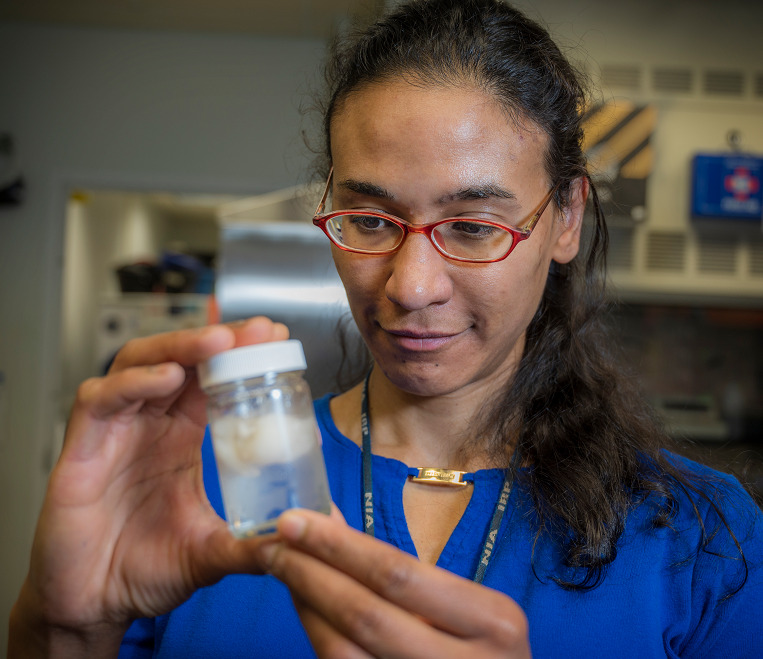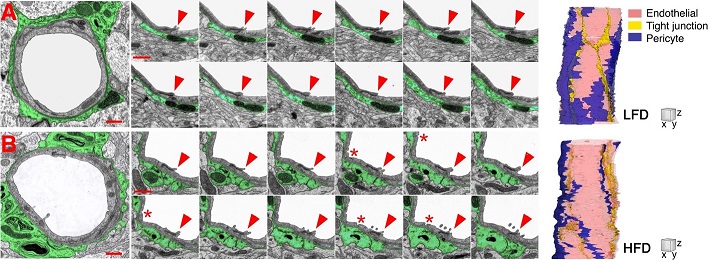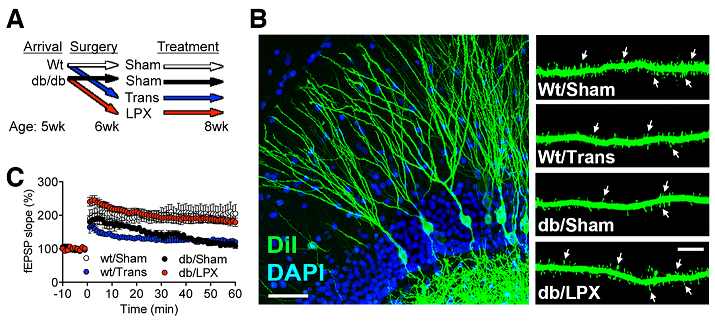Alexis M. Stranahan, PhD
Professor,
Dept. Neuroscience & Regenerative Medicine
Lead Scientific Contact & Training Coordinator - DNRM Light Sheet Facility
Telephone: 706-721-7885
E-mail: astranahan@augusta.edu
Mailing Address:
Department of Neuroscience and Regenerative Medicine
1120 15th Street, Rm. CA3064
Medical College of Georgia at Augusta University
Augusta, GA 30912
Education and Training:
PhD, Princeton University, 2008
Visiting Fellowship, National Institute on Aging, 2005-2008
Postdoctoral Training, Johns Hopkins University, 2008-2010
Research Interests:
Microglial and neurovascular regulation of hippocampal function in metabolic disorders.
Neurons are exquisitely sensitive to cellular stress due to the metabolically demanding processes underlying synaptic transmission. My lab studies the regulation of synaptic plasticity and cognition by metabolic stress at the behavioral, electrophysiological, and cellular levels. We define 'metabolic stress' broadly to encompass responses to exercise and caloric restriction at one extreme, and changes occurring in obesity and diabetes at the opposite end of this continuum. Our long-term goal is to understand how neurons, glia and cerebrovascular cells sense and respond to homeostatic challenges.
Yamamoto et al (2019) J Neurosci 39(21):4179-4192
Erion et al (2014) J Neurosci 34(7):2618-2631
Open positions:
Motivated and driven postdoctoral fellows, graduate students, and research technicians are always welcome to contact the Stranahan lab regarding opportunities. Successful candidates will receive intensive, stage-specific career counseling and long-term support for their professional goals.
Selected Publications:
- Guo DH, Yamamoto M, Hernandez CM, Khodadadi H, Baban B, Stranahan AM. Visceral adipose NLRP3 impairs cognition in obesity via IL-1R1 on CX3CR1+ cells. .J Clin Invest. 2020 Apr 1;130(4):1961-1976. doi: 10.1172/JCI126078.
- Yamamoto M, Guo DH, Hernandez CM, Stranahan AM. Endothelial Adora2a Activation Promotes Blood-Brain Barrier Breakdown and Cognitive Impairment in Mice with Diet-Induced Insulin Resistance. J Neurosci. 2019 May 22;39(21):4179-4192.
- Wosiski-Kuhn M, Bota M, Snider CA, Wilson SP, Venkataraju KU, Osten P, Stranahan AM. Hippocampal brain-derived neurotrophic factor determines recruitment of anatomically connected networks after stress in diabetic mice. Hippocampus. 2018 Dec;28(12):900-912.
- Hao S, Dey A, Yu X, Stranahan AM. Dietary obesity reversibly induces synaptic stripping by microglia and impairs hippocampal plasticity. Brain Behav Immun. 2016 Jan;51:230-9.
- Erion JR, Wosiski-Kuhn M, Dey A, Hao S, Davis CL, Pollock NK, Stranahan AM. Obesity elicits interleukin 1-mediated deficits in hippocampal synaptic plasticity. J Neurosci. 2014 Feb 12;34(7):2618-31.